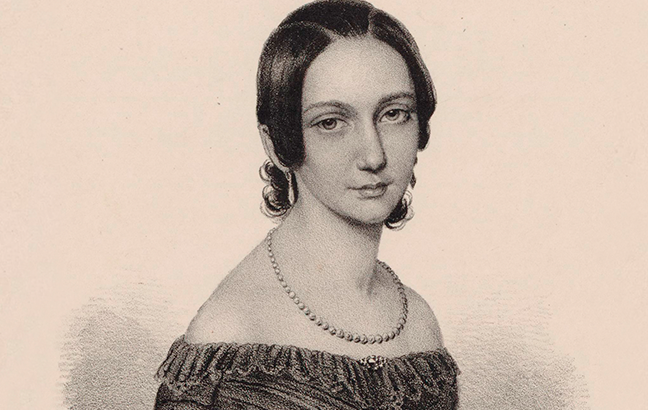Clara Schumann, born Clara Josephine Wieck on September 13, 1819, in Leipzig, Germany, was a remarkable pianist and composer who left an indelible mark on the world of classical music during the 19th century. Her life was a testament to talent, perseverance, and resilience, as she navigated the complexities of being a female musician in a male-dominated field.
Clara was a prodigy from an early age. Her father, Friedrich Wieck, was a well-known piano teacher, and he recognized her exceptional musical abilities from the start. Under her father’s rigorous tutelage, Clara began performing in public when she was just nine years old. Her stunning virtuosity and deep emotional connection to the music she played captivated audiences throughout Europe.
However, Clara’s life was not without its challenges. Her father’s ambition for her was unrelenting, and he sought to shape her into a musical superstar. This relentless pressure took a toll on her physical and emotional well-being. Clara’s parents’ tumultuous marriage further complicated her early years. Nevertheless, her determination and unwavering commitment to her art led her to overcome these obstacles.
In 1830, at the tender age of 11, Clara met a young composer and music critic named Robert Schumann. This meeting would prove to be transformative, as Clara and Robert’s deepening affection for one another blossomed into a profound love. Their relationship faced numerous hurdles, including opposition from Clara’s father, but the couple’s love prevailed. Clara and Robert married in 1840, and their partnership became one of the most legendary romances in the history of classical music.
As Clara’s fame grew, she continued to perform throughout Europe, earning the admiration of audiences and fellow musicians. Her interpretations of works by classical masters, such as Ludwig van Beethoven and Johannes Brahms, were celebrated for their emotional depth and technical brilliance. Clara was a tireless advocate for the music of her husband, Robert, and she played a significant role in promoting his compositions.
Clara Schumann’s own compositions, while often overshadowed by her performing career, are noteworthy and show her artistic depth. She composed a range of works, including piano music, lieder (German art songs), and chamber music. Her compositions are characterized by their lyricism and emotional expressiveness, drawing upon her personal experiences and her keen understanding of the Romantic era.
Tragedy struck the Schumann family in 1854 when Robert suffered a mental breakdown and was institutionalized. Clara was left to care for their seven children and manage their finances while maintaining her concert career. Her strength during this challenging period is a testament to her indomitable spirit.
Clara Schumann’s career continued to flourish even after Robert’s death in 1856. She remained a sought-after pianist, performing well into her later years. Her contributions to the world of music earned her the respect and admiration of her contemporaries, including Johannes Brahms, who became a close friend and confidant.
In her later life, Clara Schumann settled in Frankfurt and continued to teach and perform. Her artistic legacy, both as a pianist and composer, endures to this day. She was not only a pioneer for female musicians but a groundbreaking figure in the Romantic era of classical music. Her unwavering dedication to her craft and her role as a mother, wife, and composer made her a true icon in the world of classical music.
Clara Schumann’s life story serves as an inspiration for aspiring musicians, particularly women, who strive to break through barriers and pursue their artistic passions. Her unique blend of talent, tenacity, and love for music continues to resonate with audiences and musicians worldwide, ensuring that her legacy remains as timeless as her music.


Comments are closed